#Lucy Muchelney
Text
Character, book, and author names under the cut
Maddie Morrow- Havenfall by Sara Holland
Lucy Muchelney- The Lady's Guide to Celestial Mechanics by Olivia Waite
Moiraine Damodred Sedai- The Wheel of Time Series by Robert Jordan
Silariathas “Silas”- Sorcery of Thorns by Margaret Rogerson
#Maddie Morrow#Havenfall#Sara Holland#Lucy Muchelney#feminine pursuits series#The Lady's Guide to Celestial Mechanics#Olivia Waite#Moiraine Damodred Sedai#WoT#The Wheel of Time#The Wheel of Time Series#New Spring#Robert Jordan#Silas#Silariathas#Sorcery of Thorns#Silas Sorcery of Thorns#Margaret Rogerson#polls#lgbt books#queer book character tournament 2.0
45 notes
·
View notes
Text
If you want a cute, easy to follow, historical fiction story, check this out. I rented the audiobook from my library via the Libby App. It does have some spice, so earphones are helpful when listening to the audiobook.
As Lucy Muchelney watches her ex-lover's sham of a wedding, she wishes herself anywhere else. It isn't until she finds a letter from the Countess of Moth, looking for someone to translate a groundbreaking French astronomy text, that she knows where to go. Showing up at the Countess' London home, she hoped to find a challenge, not a woman who takes her breath away.
Catherine St Day looks forward to a quiet widowhood once her late husband's scientific legacy is fulfilled. She expected to hand off the translation and wash her hands of the project - instead, she is intrigued by the young woman who turns up at her door, begging to be allowed to do the work, and she agrees to let Lucy stay. But as Catherine finds herself longing for Lucy, everything she believes about herself and her life is tested.
While Lucy spends her days interpreting the complicated French text, she spends her nights falling in love with the alluring Catherine. But sabotage and old wounds threaten to sever the threads that bind them. Can Lucy and Catherine find the strength to stay together or are they doomed to be star-crossed lovers?

23 notes
·
View notes
Text
The Lady's Guide to Celestial Mechanics by Olivia Waite
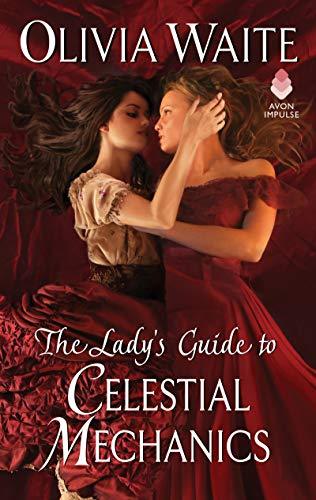
Today's sapphic book of the day is The Lady's Guide to Celestial Mechanics by Olivia Waite!
Summary: "As Lucy Muchelney watches her ex-lover’s sham of a wedding, she wishes herself anywhere else. It isn’t until she finds a letter from the Countess of Moth, looking for someone to translate a groundbreaking French astronomy text, that she knows where to go. Showing up at the Countess’ London home, she hoped to find a challenge, not a woman who takes her breath away.
Catherine St Day looks forward to a quiet widowhood once her late husband’s scientific legacy is fulfilled. She expected to hand off the translation and wash her hands of the project—instead, she is intrigued by the young woman who turns up at her door, begging to be allowed to do the work, and she agrees to let Lucy stay. But as Catherine finds herself longing for Lucy, everything she believes about herself and her life is tested.
While Lucy spends her days interpreting the complicated French text, she spends her nights falling in love with the alluring Catherine. But sabotage and old wounds threaten to sever the threads that bind them. Can Lucy and Catherine find the strength to stay together or are they doomed to be star-crossed lovers?"
#lesbian#bisexual#bi#sapphic#queer#wlw#lgbtqia#lgbtq#lgbt#books#book recs#booklr#book recommendations#romance#historical#historical fiction#historical romance#the lady's guide to celestial mechanics#olivia waite
55 notes
·
View notes
Text
Despite my busy schedule of reading fanfic, writing fanfic, and thinking about what I should do next in the fanfic, I managed to finish reading a book! A Lady's Guide to Celestial Mechanics, by Olivia Waite. I think my final verdict is "it's okay, but it could have been a lot better." (Crossposting from my DW, if this looks familiar to anyone.)
Basic synopsis: Lucy Muchelney has been working as her astronomer father's scientific assistant and in fact doing much of the work. She meets Catherine, Countess of Moth, who is a new widow and former victim of spousal emotional abuse, and tries to make it as a scientist in her own name with her new patroness. The official, misogynistic scientific society is against her, but her pop-published translation of an important French work takes off, leading them to try to embarrass her in a debate with the original author - only to inadvertently champion the cause of minorities in science. A happy ending!
To start with: it's well-written. Like, the text is never clunky, the prose is very nice. That's more than I can say for a LOT of romance novels. It's lacking all the romance-novel clichés that I hate!
But ... that's also a negative. The romance novel clichés, it turns out, are extremely boring to me when they're het - I'm always like, "why can't the man and the woman actually get along when they're not kissing/having sex? why can't they support each other? why can't things happen that aren't directly related to the deep erotic blaze they feel?" when I make the mistake of picking up a straight romance novel, and Lady's Guide does a great job of saying, "they can!" Unfortunately, this means that there is no tension or conflict between the characters until close to the very end, and it only lasts about a chapter. It turns out that I am actually super into those clichés as long as it's with a queer romance! As my AO3 output will show, frankly.
But yeah, the characters are kind of doe-eyed and supportive of each other and the story barely has anything to do with their romance, which is a cardinal sin in Romancelandia. They meet, Lucy comes to live with Catherine, they both dart glances at each other like "is she ... ?" and then they give in and kiss, and then they have sex. The obstacle comes in when they meet Lucy's ex, Pris, who got married to a man at the beginning of the book - cribbing a bit from Anne Lister, it's a Marianna situation except that Lucy finds it pretty easy to resist her - and Catherine is jealous and they don't communicate briefly, confusing them into thinking the other is done with the relationship before they explain and come back together. More grievously still for me, they just seem very samey. Their personalities seem pretty similar and if they had different aesthetics I didn't pick up on it or forgot.
Which brings me to my next point: it might just be that I knew the third book in the series was about working-class suffragists (which is extremely Social Justice Approved), but I felt like so much of this characterization and plot was determined on the basis of "what would make this book Feminist and LGBTQ+ Positive?" Lucy is introduced with her dickish painter brother threatening to sell her telescope, and the men of the scientific society are all wankers who condescend to women, promoting a well-connected (white) male idiot to do the official translation over Lucy and a biracial man. Pretty much every female character has some kind of passion or talent that is being stifled by society, which they turn into something lucrative by the end, and Waite is careful to not focus just on STEM but to have characters announce that Embroidery Is Art, Too and so on. One of the reasons that Catherine and Lucy seem so samey is that they are carefully constructed to walk a middle path between butch and femme, closer to the femme side, which avoids the cliché of historical women hating gowns and corsets etc.
And I hear you saying, but Cassidy! It sounds like she did everything you complain about authors not doing! This is true. However, it felt like it was done specifically to make discourse-savvy readers happy rather than because it was true to characters that appeared in her head. (Also, I freaking love a strong butch/femme dynamic, I am high femme and I swoon at the thought of a tall, chivalrous butch, particularly if she sometimes dresses in historical male clothing. GOD. In general I like "opposites attract" ships, really.)
This all being said, I loved the twist of the French author turning out to be a titled woman of color - it was really well handled. I didn't think at all about their identity, just assumed they were a Macguffin, and so the reveal blindsided me. Very little in romance novels is actually surprising, so that was great. But on the whole, I didn't feel the feelings I ought to have felt in reading. And maybe my standards have been off because I've been reading OFMD fic that really makes me feel things lately, but IDK.
17 notes
·
View notes
Text
Catherine wanted Lucy, but more than that, Catherine wanted Lucy to want her back. And Lucy wouldn’t, if she were still pining for the girl she’d lost. So Catherine let the days flow by like water while she put in stitch after stitch after stitch, as though each one were mending a small rent in Lucy Muchelney’s heart.
The Lady's Guide to Celestial Mechanics (Feminine Pursuits, #1) by Olivia Waite
#book quote#the lady's guide to celestial mechanics#olivia waite#feminine pursuits#historical romance#sapphic#queer#quote#quotes#booklr#bookblr
4 notes
·
View notes
Text
Book Review: The Lady's Guide to Celestial Mechanics by Olivia Waite
Author: Olivia Waite
Title: The Lady’s Guide to Celestial Mechanics
Narrator: Morag Sims
Publication Info: Harper Audio, 2020
Summary/Review:
Lucy Muchelney learned astronomy under the tutelage of her late father. She finds an opportunity to translate a new astronomy text from French, but is turned down by the gentleman’s science society on the basis of her sex. Instead, the widow Catherine,…

View On WordPress
0 notes
Text

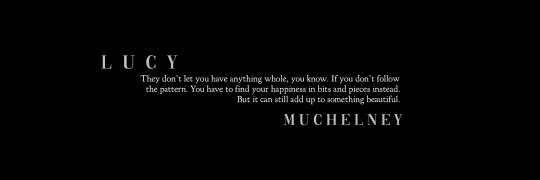
like or reblog if u save
3 notes
·
View notes
Text
Lucy Muchelney
Title: The Lady’s Guide to Celestial Mechanics
Category: Book
Author: Olivia Waite
Status: First Billed
Orientation: Lesbian
Check the read-more to see if Lucy is alive
Lucy is alive
#Lucy Muchelney#The Lady's Guide to Celestial Mechanics#Book#Olivia Waite#First Billed#Lesbian#I didn't include a picture of the cover because the cover is SO BAD#the women on it do not look like the characters described#and their dresses are nowhere near correct for the era#so we're just gonna roll w this 'k?#it's a good book I promise
6 notes
·
View notes
Photo

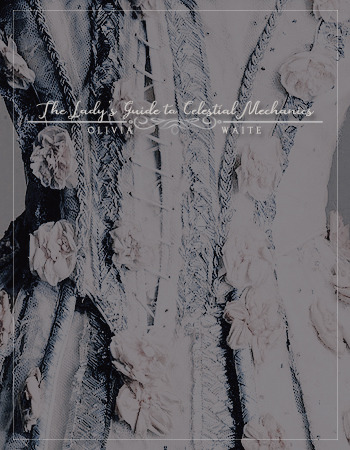
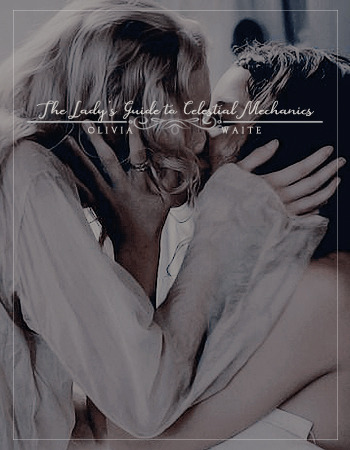
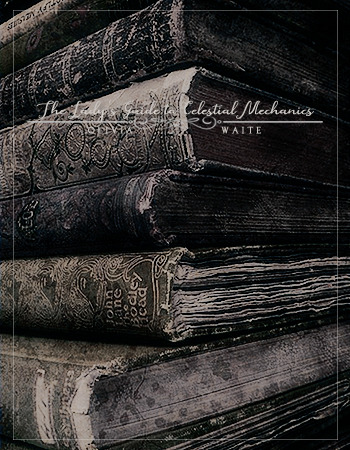


read in 2019 📖 The Lady’s Guide to Celestial Mechanics by Olivia Waite
“We thought we were separate satellites, but we aren’t. We’re stars, and though we might burn separately, we’ll always be in one another’s orbit.”
#The Lady’s Guide to Celestial Mechanics#lgbtq books#lgbtq#lgbtq literature#litedit#dailylit#lucy muchelney#catherine st. day#lucy x catherine#my edits#read in 2019 meme#the lady's guide to celestial mechanics#feminine pursuits series#olivia waite
69 notes
·
View notes
Text
Inspiration

'To get you in a romantic mood and spark some ideas for potential prompts, here is some inspiration in the form of romance novel covers and plots. With many thanks to @skeptiquewrites
What are your favourite romance novels? Do you know any particularly delicious cover art? Please share!
You can browse current prompts here. Prompting will end 2nd April.
The Soldier's Scoundrel by Cat Sebastian

A scoundrel who lives in the shadows
Jack Turner grew up in the darkness of London's slums, born into a life of crime and willing to do anything to keep his belly full and his siblings safe. Now he uses the tricks and schemes of the underworld to help those who need the kind of assistance only a scoundrel can provide. His distrust of the nobility runs deep and his services do not extend to the gorgeous high-born soldier who personifies everything Jack will never be.
A soldier untarnished by vice
After the chaos of war, Oliver Rivington craves the safe predictability of a gentleman's life-one that doesn't include sparring with a ne'er-do-well who flouts the law at every turn. But Jack tempts Oliver like no other man has before. Soon his yearning for the unapologetic criminal is only matched by Jack's pleasure in watching his genteel polish crumble every time they're together.
Two men only meant for each other
The Reluctant Royal series by Alyssa Cole

While her boss the prince was busy wooing his betrothed, Likotsi had her own love affair after swiping right on a dating app. But her romance had ended in heartbreak, and now, back in NYC again, she's determined to rediscover her joy--so of course she runs into the woman who broke her heart.
When Likotsi and Fabiola meet again on a stalled subway train months later, Fab asks for just one cup of tea. Likotsi, hoping to know why she was unceremoniously dumped, agrees. Tea and food soon leads to them exploring the city together, and their past, with Fab slowly revealing why she let Likotsi go, and both of them wondering if they can turn this second chance into a happily ever after.
The Lady's Guide to Celestian Mechanics by Olivia Waite

As Lucy Muchelney watches her ex-lover’s sham of a wedding, she wishes herself anywhere else. It isn’t until she finds a letter from the Countess of Moth, looking for someone to translate a groundbreaking French astronomy text, that she knows where to go. Showing up at the Countess’ London home, she hoped to find a challenge, not a woman who takes her breath away.
Catherine St Day looks forward to a quiet widowhood once her late husband’s scientific legacy is fulfilled. She expected to hand off the translation and wash her hands of the project—instead, she is intrigued by the young woman who turns up at her door, begging to be allowed to do the work, and she agrees to let Lucy stay. But as Catherine finds herself longing for Lucy, everything she believes about herself and her life is tested.
While Lucy spends her days interpreting the complicated French text, she spends her nights falling in love with the alluring Catherine. But sabotage and old wounds threaten to sever the threads that bind them. Can Lucy and Catherine find the strength to stay together or are they doomed to be star-crossed lovers?
Felix Ever After by Kacen Callender

Felix Love has never been in love—and, yes, he’s painfully aware of the irony. He desperately wants to know what it’s like and why it seems so easy for everyone but him to find someone. What’s worse is that, even though he is proud of his identity, Felix also secretly fears that he’s one marginalization too many—Black, queer, and transgender—to ever get his own happily-ever-after.
When an anonymous student begins sending him transphobic messages—after publicly posting Felix’s deadname alongside images of him before he transitioned—Felix comes up with a plan for revenge. What he didn’t count on: his catfish scenario landing him in a quasi–love triangle....
But as he navigates his complicated feelings, Felix begins a journey of questioning and self-discovery that helps redefine his most important relationship: how he feels about himself.
Boyfriend Material by Alexis Hall

Luc O'Donnell is tangentially--and reluctantly--famous. His rock star parents split when he was young, and the father he's never met spent the next twenty years cruising in and out of rehab. Now that his dad's making a comeback, Luc's back in the public eye, and one compromising photo is enough to ruin everything.
To clean up his image, Luc has to find a nice, normal relationship...and Oliver Blackwood is as nice and normal as they come. He's a barrister, an ethical vegetarian, and he's never inspired a moment of scandal in his life. In other words: perfect boyfriend material. Unfortunately apart from being gay, single, and really, really in need of a date for a big event, Luc and Oliver have nothing in common. So they strike a deal to be publicity-friendly (fake) boyfriends until the dust has settled. Then they can go their separate ways and pretend it never happened.
But the thing about fake-dating is that it can feel a lot like real-dating. And that's when you get used to someone. Start falling for them. Don't ever want to let them go.
Common romance novel tropes @ TVTropes
Romance genre @ Goodreads
Best Historical Romance Covers @ Goodreads
20 notes
·
View notes
Photo
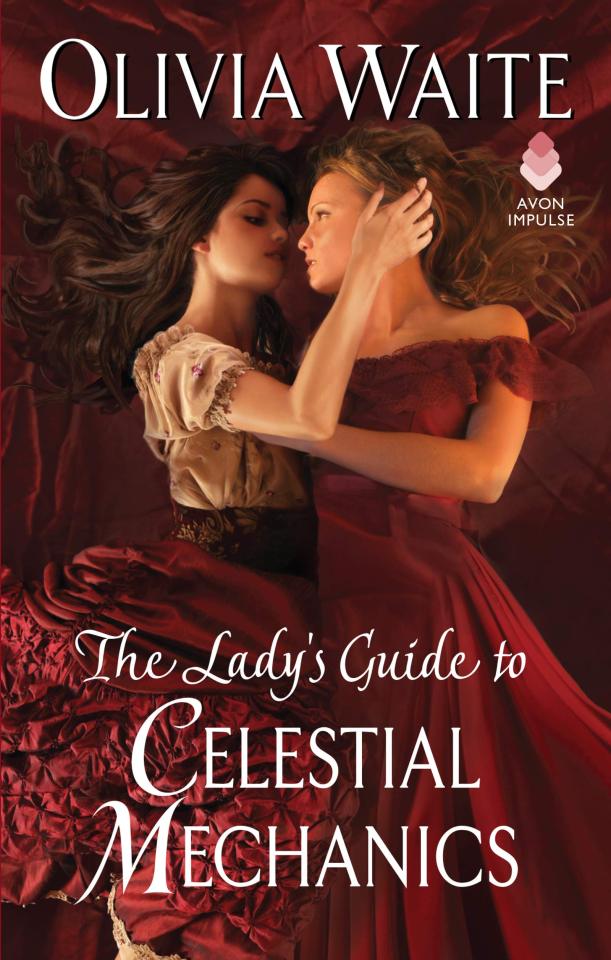
The Lady’s Guide to Celestial Mechanics by Olivia Waite
As Lucy Muchelney watches her ex-lover’s sham of a wedding, she wishes herself anywhere else. It isn’t until she finds a letter from the Countess of Moth, looking for someone to translate a groundbreaking French astronomy text, that she knows where to go. Showing up at the Countess’ London home, she hoped to find a challenge, not a woman who takes her breath away.
Catherine St Day looks forward to a quiet widowhood once her late husband’s scientific legacy is fulfilled. She expected to hand off the translation and wash her hands of the project—instead, she is intrigued by the young woman who turns up at her door, begging to be allowed to do the work, and she agrees to let Lucy stay. But as Catherine finds herself longing for Lucy, everything she believes about herself and her life is tested.
While Lucy spends her days interpreting the complicated French text, she spends her nights falling in love with the alluring Catherine. But sabotage and old wounds threaten to sever the threads that bind them. Can Lucy and Catherine find the strength to stay together or are they doomed to be star-crossed lovers?
Genres: historical, romance
Get the book from The Book Depository here!
120 notes
·
View notes
Text
Review: The Lady's Guide to Celestial Mechanics
Review: The Lady’s Guide to Celestial Mechanics
Synopsis: As Lucy Muchelney watches her ex-lover’s sham of a wedding, she wishes herself anywhere else. It isn’t until she finds a letter from the Countess of Moth, looking for someone to translate a groundbreaking French astronomy text, that she knows where to go. Showing up at the Countess’ London home, she hoped to find a challenge, not a woman who takes her breath away.
Catherine St Day…

View On WordPress
#book#book review#books#lesbian fiction#lgbtq+#lgbtq+ fiction#romance#the lady’s guide to celestial mechanics
4 notes
·
View notes
Text
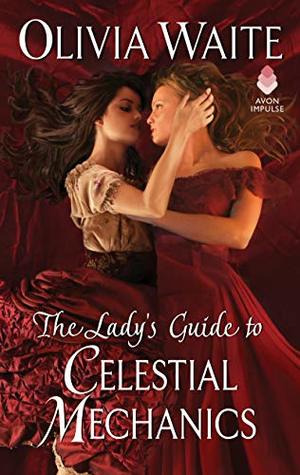
The Lady’s Guide to Celestial Mechanics. By Olivia Waite. New York: Avon Impulse, 2019.
Rating: 2.5/5 stars
Genre: historical romance, wlw romance
Part of a Series? Yes, Feminine Pursuits #1
Summary: As Lucy Muchelney watches her ex-lover’s sham of a wedding, she wishes herself anywhere else. It isn’t until she finds a letter from the Countess of Moth, looking for someone to translate a groundbreaking French astronomy text, that she knows where to go. Showing up at the Countess’ London home, she hoped to find a challenge, not a woman who takes her breath away.
Catherine St Day looks forward to a quiet widowhood once her late husband’s scientific legacy is fulfilled. She expected to hand off the translation and wash her hands of the project—instead, she is intrigued by the young woman who turns up at her door, begging to be allowed to do the work, and she agrees to let Lucy stay. But as Catherine finds herself longing for Lucy, everything she believes about herself and her life is tested.
While Lucy spends her days interpreting the complicated French text, she spends her nights falling in love with the alluring Catherine. But sabotage and old wounds threaten to sever the threads that bind them. Can Lucy and Catherine find the strength to stay together or are they doomed to be star-crossed lovers?
***Full review under the cut.***
Content Warnings: sexism, allusions to homophobia
Overview: I feel like I’m in the minority of not loving this book as much as I wanted to. Based on content alone, it should have been a perfect storm for me: a historical sapphic romance, a lady scientist, debates about the value of art and women’s contributions... but while the romance genre doesn’t have nearly enough wlw stories, representation alone wasn’t enough to sustain my interest in this novel. It had the threads of a good story - something along the lines of The Countess Conspiracy or The Suffragette Scandal - but in my opinion, too much of the focus was on needless interpersonal drama, which left the plot dragging for the bulk of the story. So though the representation is great, and there are a number of feminist themes that I think are valuable, I didn’t enjoy this book enough to give it more than 2 or 3 stars.
Writing: Waite’s prose is about what you’d expect from the romance genre. It’s simple and straightforward, getting to the point without leaving the reader wondering what’s going on. My main criticism would perhaps be that Waite sometimes does a little head-hopping in the middle of a chapter without a section break. One minute, we’ll be seeing things from Lucy’s POV, and the next, we’ll get something from Catherine, then back to Lucy. It was a little jarring, but not too distracting - I could still immerse myself in the story ok.
Plot: The Lady’s Guide follows Lucy Muchelney as she translates, expands, and publishes M. Oleron’s Mechanique celeste (an astronomy text) under the patronage of Lady Catherine St. Day, Countess of Moth. After being rebuffed by the male members of the Polite Science Society, Lucy endeavors to render her own translation in hopes of educating readers who are interested in astronomy, but may not have had access to the range of texts needed to understand Oleron’s work. Catherine, for her part, funds the printing of Lucy’s work, while also discovering her own value as an embroiderer.
On the surface, this plot had all the things I love: women in science, valuing women’s art, a social commentary on patriarchy. But despite the interesting threads, I didn’t feel as if Waite used them to the greatest advantage. Aside from a few scenes, there wasn’t a lot of external pressure from the Polite Society; any drama that arose from their sexism was easily dismissed or avoided with a trip to the country, and I felt as if sexism in this book was more of a nuisance than a threat. This isn’t to say I wanted the characters to be constantly suffering or be miserable from an onslaught of male meddling, but I would like to have seen more of a sustained plotline where the Polite Society attempts to thwart Lucy’s efforts, thereby creating more suspense and giving Lucy and Catherine some external challenges to face together.
I also think the subplots could have been strengthened so that they enhanced the main conflict. The plot involving Eliza, the maid with a talent for sketching, was a good parallel to Catherine’s arc, which involved finding and rewarding women’s talents in art, but Eliza wasn’t a compelling character on her own, nor did I think Catherine reflect enough on the paradox of how she encouraged Eliza but not herself. I also think more could have been done with Lucy’s brother, Stephen, so that his meddling in Lucy’s career paralleled the Polite Society’s - just in a more subtle way, thereby showing different forms of sexism. Granted, there is a little of that, but like the Polite Society, Stephen pops up at convenient times before disappearing a page or two later.
Characters: I hate to say it, but I didn’t feel as if I could connect to the characters. Lucy, one of our heroines, is a mathematician and astronomer who inspires Catherine to see herself as an artist... and that’s mostly it. I guess she’s also bold and headstrong, but honestly, she felt more like an archetype than a fully-fledged character.
Catherine, for her part, is meek on account of being mistreated by her husband, but has brilliant skills as an embroiderer and is generous with her financial support. I did like the depth that Catherine had with regards to her insecurity over whether or not she could call herself an artist, and I liked that she respected Lucy’s feelings and didn’t allow her desires to be too selfish. But I also felt like she had no ambition or desires of her own until maybe 75% of the way through the book, and she mainly existed to support Lucy.
Side characters were hit or miss. I liked the idea of Eliza, the maid who gets to put her drawing skills to use as an engraver, but she wasn’t a fully-fleshed out character and didn’t hold my interest on her own. Stephen, Lucy’s brother, had the potential to be interesting, as he is an artist and acts as a foil to Lucy in many ways, but he flits in and out of the story as needed. Even Lucy’s ex, Pricilla, seems only to exist to make petty drama; there was no pining, no angst, and I didn’t see why Lucy had once loved her. There wasn’t even any commentary on how both Pris and Catherine were blond women who were skilled at embroidery.
Polite Society members had the potential to be good antagonists, but because their appearances were so contained, I don’t think they were used to their full potential. They provided some nice commentary, but I would have liked to see them meddle more often in Lucy’s translation process.
Romance: This is personal preference: I don’t like it when the love interests get together too early in the story. It usually means the rest of the romance is going to revolve around petty drama, and I think that’s what I got here. Lucy and Catherine become a couple some 25% of the way through the book, and for the life of me, I couldn’t see why they wanted to be together other than they were interested in women and happened to be sharing a house. Over time, their reasons for loving one another became a little more clear: Lucy loves that Catherine believes in her and lets her forge her own path, whereas Catherine loves that Lucy values her skills and lifts her up, rather than dismissing her (as Catherine’s deceased husband did). While these are certainly nice, I wanted there to be a little more to their romance. Because they got together so quickly, there was very little pining, very little growth in their affections.
I also think all the angst and relationship drama that happened after they got together was a little tedious. Lucy spends some time pining for her ex, which causes Catherine to be jealous. Catherine also sees the relationship as being incompatible at one point because Lucy likes science and she likes art, so of course that means they’re on different paths that can’t be reconciled. Most of the barriers to the relationship could have been overcome by either talking it out or getting to know one another a little better, so rather than good tension (in the form of suspense), I felt like there was pointless tension. I would have much rather seen Waite dive into the very real concerns, such as the economic inequality between them or the lack of permanence that comes with not being able to marry - I think those are real, life-altering concerns that could have tied in well with the non-romance plot, but unfortunately, those concerns seemed to be resolved a little too neatly.
TL;DR: Despite having some much-needed wlw representation and a number of feminist themes, The Lady’s Guide to Celestial Mechanics does little to cultivate a compelling plot and relies on misunderstandings to drive the romantic tension.
2 notes
·
View notes
Text
Susan reviews The Lady's Guide to Celestial Mechanics by Olivia Waite
Susan reviews The Lady’s Guide to Celestial Mechanics by Olivia Waite
Olivia Waite’s The Lady’s Guide to Celestial Mechanicsis a historical romance that revolves around two queer women creating a space for themselves in art and science. Lucy Muchelney’s lover has just married someone else, and her brother is trying to get her to give up on astronomy; her only recourse is to fling herself on the mercies of Lady Catherine St Day, who’s seeking a translator for a…
View On WordPress
17 notes
·
View notes
Text
The Lady’s Guide To Celestial Mechanics
I (Mod Tea) am just getting into romance novels, and what a treat that this nerdy Regency gem was waiting to welcome me into the genre! The Lady’s Guide To Celestial Mechanics (2019) begins with Lucy Muchelney, daughter and assistant of a respected astronomer, heartbroken at her ex-lover’s wedding to a man. When a correspondent of her late father’s, widowed countess Catherine St. Day, asks for help finding a translator for a groundbreaking French astronomy text, Lucy volunteers for the task herself. She stays in Catherine’s London home to work on the project, and romance blossoms.

Where some romances about scientists use science as window dressing, this book ingrains its scientific concepts deeply into the story. I loved how Lucy and Catherine grappled with finding their places in art and science, and engaged philosophically with each other. Their struggles with the erasure of women in intellectual life, with the erasure of wlw in society, and with the scars from Catherine’s emotionally abusive marriage all feel authentic. Science, feminism, AND on-screen sex? Sign me up!

Olivia Waite is bisexual, and in the acknowledgements extends her gratitude for a specific bi heroine written by Cathy Pegau, and how this representation helped her embrace her own identity. She is the romance fiction columnist for the New York Book Review, and she has an extensive list of published work including romance, sci-fi, and fantasy, which you can check out on her website. Waite lives in the Pacific Northwest with her husband Charles and their miniature dachshund.
The sequel to this book, The Care and Feeding of Waspish Widows (2020), has just come out.
#The Lady's Guide To Celestial Mechanics#Olivia Waite#book#bisexual creator#bisexual character#lesbian character#Mod Tea#original post
4 notes
·
View notes
Text
Review: The Lady’s Guide to Celestial Mechanics

[Image ID: The cover of The Lady’s Guide, which features two brunette white women, dressed in long, flowing red gowns.]
The Lady’s Guide to Celestial Mechanics, by Olivia Waite
Rating: 5 stars
I love space. I wish I’d realized a little sooner in my life just how much, because then I might be an astronomer now, but no matter. As it stands, it means I read a lot of space opera sci-fi.
This isn’t space opera. It’s not science fiction. But it is the story of an astronomer - a queer lady astronomer, in fact. I can’t remember how I found this book - it may have been recommended by Overdrive while I was looking for something else. But as soon as I read the description, I knew I had to read it.
The book starts with Lucy Muchelney attending the wedding of her best friend and former lover to a man. She’s heartbroken, and her brother adds insult to injury by threatening to sell her telescope. But she finds a letter from Lady Moth, a countess who had corresponded, on behalf of her astronomer husband, with Lucy’s father. She’s asking for recommendations of a translator for an important astronomical text, and Lucy decides to put herself forward as the suggestion. She travels to London rather than sending a letter, in hopes of making a stronger case.
Lucy and Lady Moth - Catherine - are immediately attracted to one another, but neither is quite sure what to do about that attraction. Catherine is rather uncertain of how to deal with attraction at all, as she is still dealing with the trauma dealt her by her abusive husband (who passed away before the book starts). But this isn’t a slow burn romance, and they find their way to each other surprisingly quickly (although perhaps not, as I don’t read romances as often as I should). It’s a very well-written relationship, with each character coming into it from a different place but doing their level best to make sure that it’s a good and healthy relationship for both of them. Both women have multiple moments of realizing that the other has helped them come more fully into their own self, and they want to create a world together that allows each of them to continue to grow.
I was also impressed with the sex scenes. I’m not always comfortable reading sex scenes (for various reasons, including reading at work), but this book handled them in a way that made it obvious when a sex scene was about to unfold and give me the choice of whether I wanted to read it at that point. The sex also read as realistic and healthy and good, and a complement and extension of their romance, not something separate from it.
As Lucy and Catherine explore their romance and each other, they also have to deal with the overwhelming amount of sexism present in England’s scientific community, many members of which are trying to prevent Lucy from translating the astronomical text. The sexism is both implicit and explicit, with various characters pointing it out and trying to subvert it. There’s also their society’s homophobia, which prevents Lucy and Catherine from being as public about their love as they would both like to be.
But while the sexism and homophobia are both heavily present in the novel, and cause pain for the characters, they are not as...overdramatized, perhaps, as they can be in some stories. This is so obviously a book by a queer woman, for other queer women. And the way heavy, painful systems of oppression are dealt with by this novel is absolutely a breath of fresh air.
There’s also a wonderful amount of science, and art, and the interaction thereof, and the importance of women’s contributions in all kinds of fields. Catherine learns that just because her art (embroidery) is not “high art,” nothing says that it’s not art at all.
I really enjoyed this book. Each character feels like their own person, but also interconnected to all the others, and reactive to those other characters. The characters learn and grow, and while they are stymied by the prejudices of their time, the story at no point feels like tragedy porn. It’s a story that’s definitely going on my re-read list.
Warnings: sexism, misogyny, homophobia, mention of past spousal abuse, mention of past non-consensual sexual acts, mention of parental death
#book review#the lady's guide to celestial mechanics#olivia waite#queer fiction#queer romance#look! my first book review!#logan reviews#sex m
25 notes
·
View notes